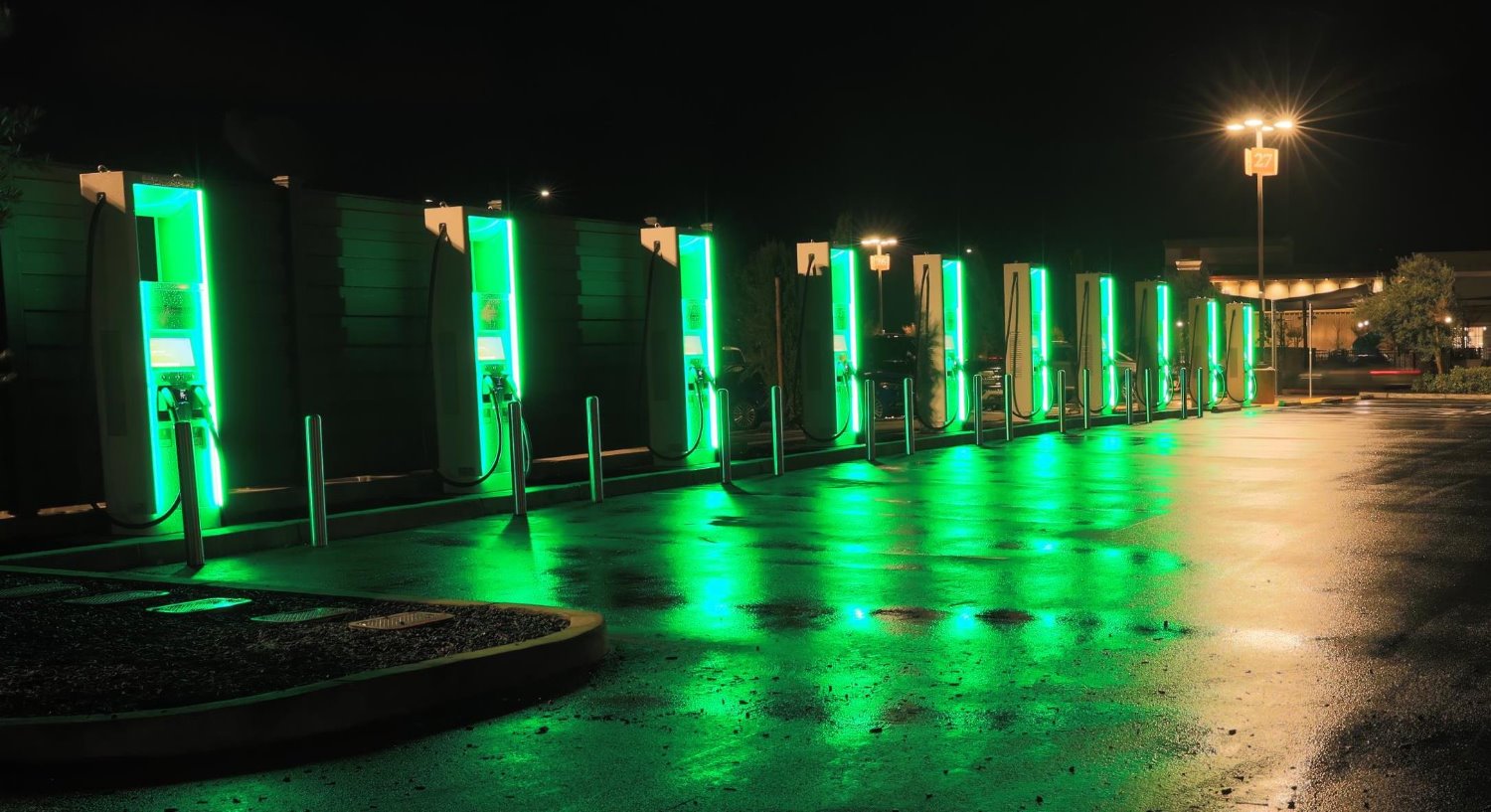Electrify America Will Deploy Tesla Battery Packs
 |
| Electrify America chargers |
Electrify America, the organization created to spend $2 billion of Volkswagen diesel-cheating penalties on zero-emission vehicle infrastructure, will be teaming up with Tesla. The American automaker's battery packs will be used for energy storage at more than 100 Electrify America charging stations, it confirmed on Monday.
The battery packs, which will be installed throughout 2019, will help lower operating costs by lessening the need to draw power from the grid during times of peak demand, a statement released by the company said. Stationary battery packs can be charged during periods of low demand, saving electricity for when demand increases.
Each charging-station site will get roughly 350 kWh of energy-storage capacity, according to Electrify America. But the setup is modular, so more storage capacity can be added in the future if needed.
While car production gets most of the attention, energy storage is a significant business for Tesla. In its 2018 financial results, the company said it deployed 1.04 gigawatt-hours of energy-storage battery packs last year, nearly tripling the amount of 2017. In a letter to investors, Tesla said plans to increase production of battery packs at its massive Nevada Gigafactory, aiming for 2 GWh in 2019.
However, Tesla has not added battery packs to its existing network of Supercharger stations on a large scale yet. Other automakers, such as Renault, have experimented with combining charging stations and energy storage, while Volkswagen plans to manufacture a mobile charging station with a self-contained battery pack. Right now, though, most charging stations get their electricity from the grid.
Electrify America plans to install 2,800 charging stations nationwide by June. While stations are open to cars from all automakers, Tesla continues to use its own proprietary Supercharger standard for DC fast charging. That means Tesla owners can't get the fastest charge at Electrify America stations, which use the CHAdeMO and CCS standards, without an adapter.
